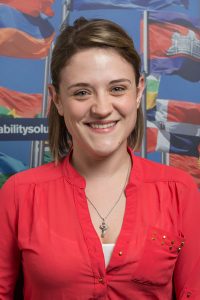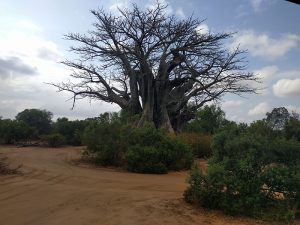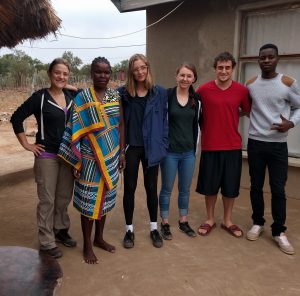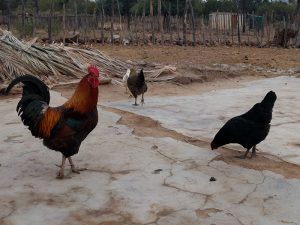
Our Days at the Homestay
By Randi Bromm
We are at the end of our homestay awaiting the arrival of our caravan to pick us up and take us back to camp. It has been a very different experience and my group of four hut mates and I have learned a lot. We have stayed in Tshianzwazie, which is a small district in the village of HaMakuya.
 The village is on the outskirts of Kruger, about 2 hours past the Pafuri gate and through some rather rough roads. As a whole, the village features baobab trees, ironwood groves, mopane woodland and lots of bird species. However wildlife is not exactly the focus of our stay this time. Through the Tshulu Trust Camp, our homestays have been arranged within this community that struggles with water security on a daily basis.
The village is on the outskirts of Kruger, about 2 hours past the Pafuri gate and through some rather rough roads. As a whole, the village features baobab trees, ironwood groves, mopane woodland and lots of bird species. However wildlife is not exactly the focus of our stay this time. Through the Tshulu Trust Camp, our homestays have been arranged within this community that struggles with water security on a daily basis.

We stayed with a family headed by a women named Violet who was very kind and warm to all of us. We have been housed in part of their home which is a separate rondavel hut they prepared for us that stands alone from the main house.
This is their traditional house that they used to live in while they slowly constructed their more modern dwelling. The hut has been decorated with traditional linens hung on the walls and handwoven mats on the floor, which is a smooth hard surface made of compacted cow dung and mud. We slept on the mats during the evening although Violet was kind enough to provide big fluffy blankets to increase comfort levels.
 During the day, our meals were had in the hut with our translator Cheetay. Violet would enter first with a large bin of hot water for us to wash our hands in, followed by a tray with food items for breakfast, lunch and dinner. Last night we prepared our own food, from start to finish. This involved slaughtering and preparing our own chicken for dinner. One of my hut mates Derek had bravely volunteered for the slaughtering part which I am highly grateful for as I was uncertain that I could do it without issue. Fortunately it was not nearly as dramatic as I had anticipated.
During the day, our meals were had in the hut with our translator Cheetay. Violet would enter first with a large bin of hot water for us to wash our hands in, followed by a tray with food items for breakfast, lunch and dinner. Last night we prepared our own food, from start to finish. This involved slaughtering and preparing our own chicken for dinner. One of my hut mates Derek had bravely volunteered for the slaughtering part which I am highly grateful for as I was uncertain that I could do it without issue. Fortunately it was not nearly as dramatic as I had anticipated.
There have been a large amount of glaring cultural differences as well as misunderstandings surrounding our communication. Although we have a translator with us at all times, conversation can be slow and difficult. I also suspect much is lost in translation which became the most apparent during the surveys we conducted for the IMAGINE program, a water assessment research project headed by Dr. Melissa McHale. We have been asking the community members questions about the quality, reliability and availability of their water and I suspect that the answers given to the translator are much more nuanced than what is filtered out and told to us.
Facial expressions and body language can tell you so much about a person and I found that I have been relying on that much more in the past two days since language is no longer a primary means of communicating. When I ask whether they believe their water is safe to drink, although I am translated yes, I felt their facial expressions would say otherwise. This is a village with no household plumbing which means no running water. This also means no bathrooms or kitchen sinks. The entire concept of how water is handled on a day to day basis is much more complicated here.
I was much more acutely aware of this during my latrine visits or after plucking the feathers from the chicken, when my immediate desire to wash up and cleanse myself could not be easily placated. A bucket of water to dip your hands in to wash off dirt may be available, but there was no faucets to turn on and no soap to lather up with. Furthermore, we learned that any water that was available on site was collected from a river that was miles away but the most reliable source since the town taps could only be trusted to provide water twice a week, if that.
This experience was definitely eye-opening and enlightening. I cannot imagine that I will be able to return home in less than a week and be able to regard this precious resource so carelessly.

